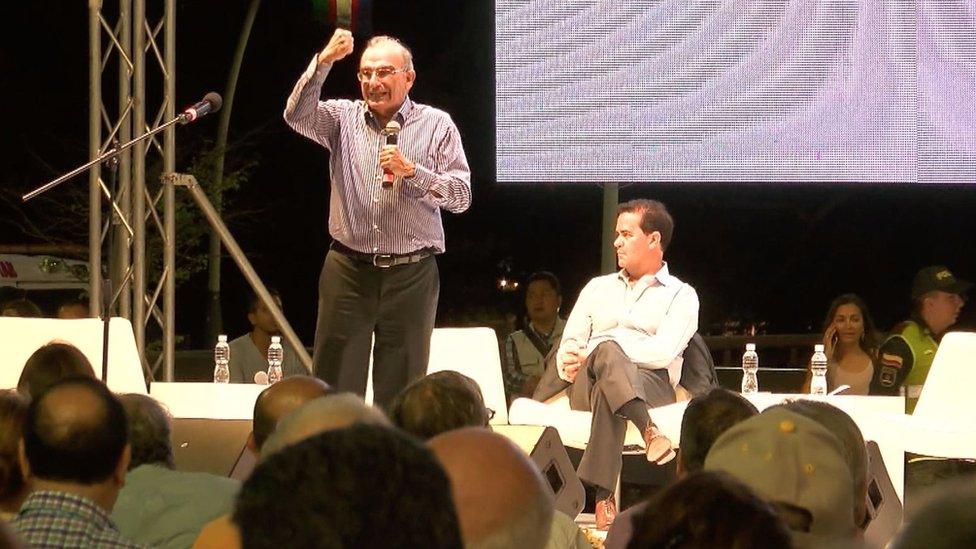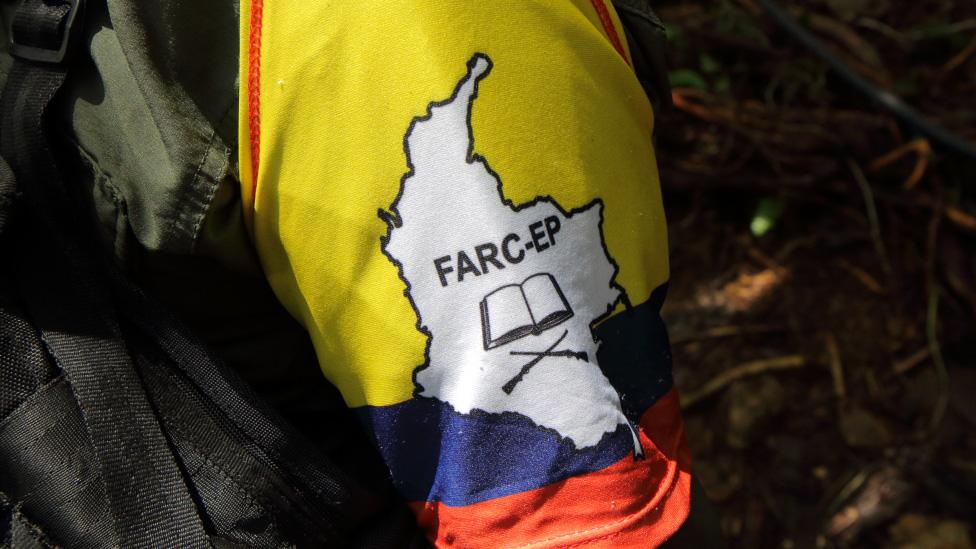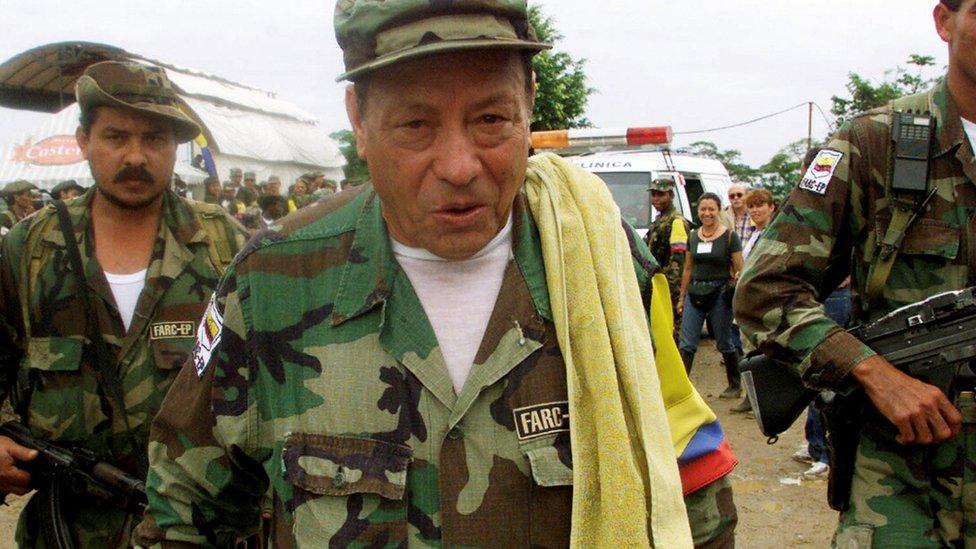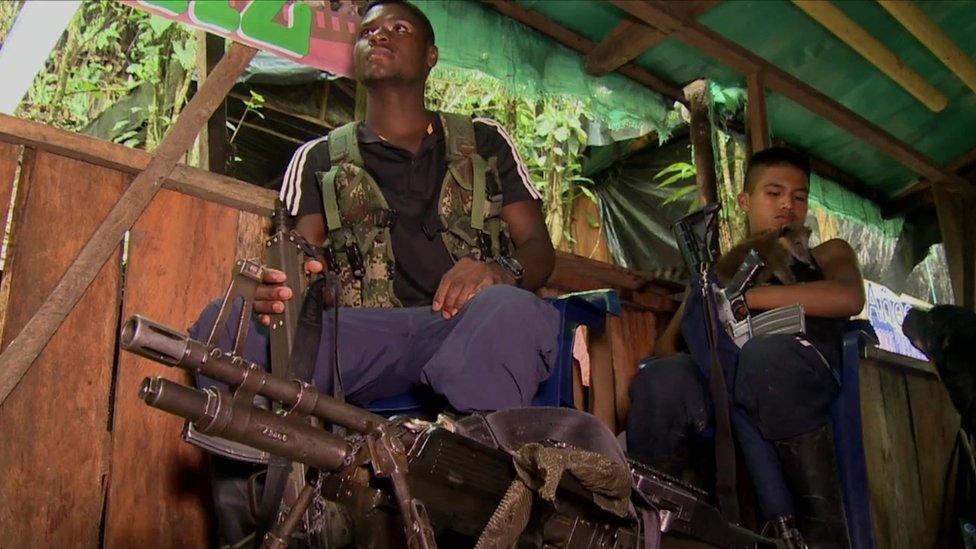Colombia Farc: Government negotiator warns over referendum
- Published
Humberto de la Calle tells the BBC the Colombian peace deal referendum is "like Brexit".
The man who led the Colombian government to a peace deal with the country's main leftist rebel group has warned that if the public vote against the deal, it could take 10 years before new negotiations are started.
Humberto de la Calle spent four years negotiating with the Farc in Havana.
At the start of October, Colombians will be asked in a referendum whether they support the peace deal.
Campaigners for a "no" vote believe the deal is too lenient on the Farc.
It includes the possibility of reduced sentences for those who confess early and ask for forgiveness, and amnesty for less serious crimes.
But Mr de la Calle said that if the "no" vote won, the peace process would stop.
"The 'no' camp's idea of renegotiating seems like a massive mistake to me," he said.
The Farc (Revolutionary Armed Forces of Colombia) is one of the armed groups that was involved in more than 50 years of internal conflict in which an estimated 260,000 people died and millions had to leave their homes.
It and the government are currently on ceasefire, following the signing of the historic peace accords.
Mr de la Calle told the BBC that the peace referendum was similar to the "Brexit" referendum where the UK voted to leave the EU.
He said: "The risk is that if people vote 'no', thinking this will bring about a renegotiation, it is certain that nothing will happen. "If 'no' wins, the process stops."

Humberto De la Calle and other members of the negotiation team are travelling around the country to muster support for the peace deal
Historically, he said, any "rupture" between Farc and the government has been followed by a decade of no communication.
"Ten years pass without any conversation," he said.
The Farc will meet for a conference this weekend where they will decide whether to ratify the agreement for themselves. They are expected to vote it through.
The BBC's reporter in Colombia, Natalio Cosoy, asked Mr de la Calle if he thought he individually might be friends with a member of the Farc a decade after the peace deal was implemented.
"Not necessarily," came the reply.
"But I do think we will have a constant interaction."
- Published24 November 2016

- Published6 October 2016

- Published23 June 2016
